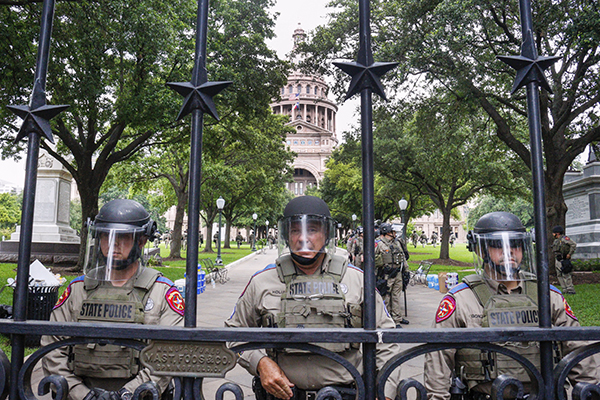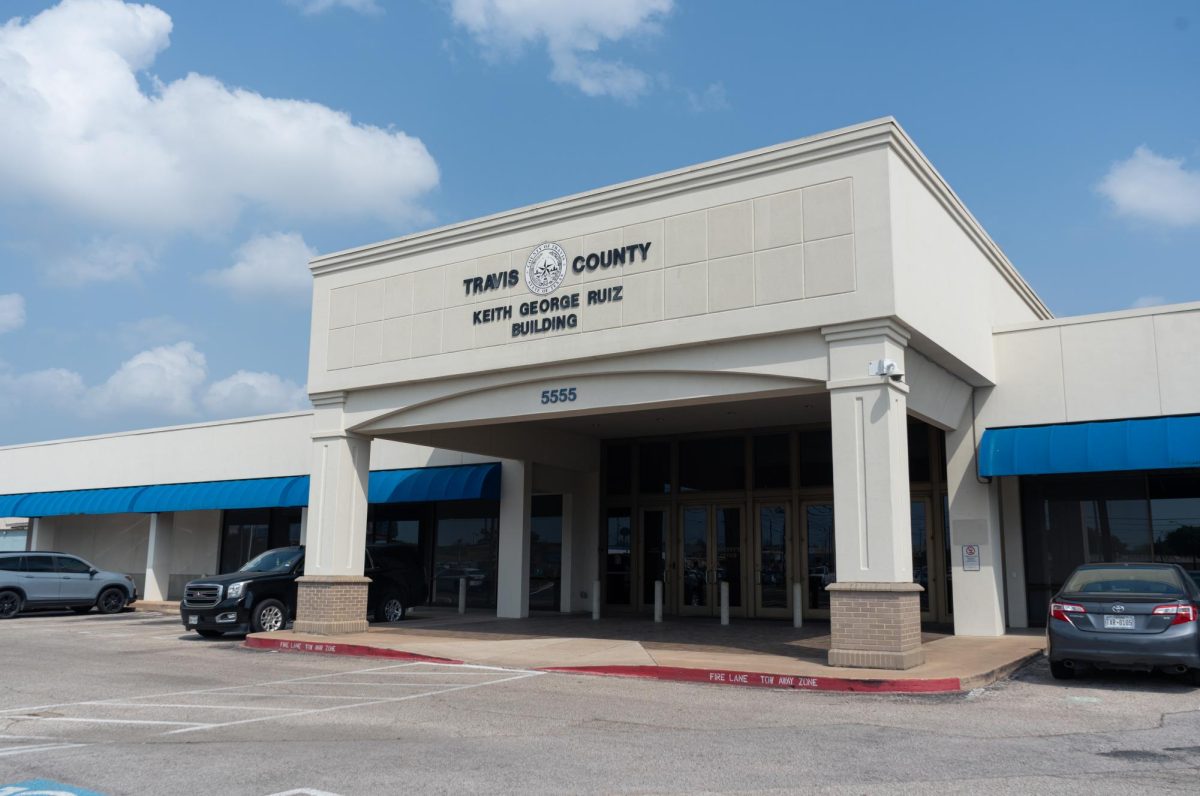Editor's Note: This story first appeared in The Daily Texan's February 2 print edition.
Gov. Greg Abbott is pushing for the Texas Legislature to create laws penalizing cities who reallocate funds away from the police.
Last August, the Austin City Council reallocated $150 million — over a third — of the Austin Police Department budget. These reallocations were passed to fund alternative ways to respond to crime and crime-prevention programs following the Black Lives Matter protests during the summer and constituent calls to rethink policing.
However, the reallocations have sparked backlash from some political figures such as Abbott, who has repeatedly claimed such budget changes endanger public safety.
“Cities that defund the police — they make it physically impossible for citizens to live safely,” Abbott said in a press conference last Thursday. “That is why we must make it fiscally impossible for cities to defund the police.”
Abbott said on Twitter that property crime and homicide rates have risen in Austin as a result of police fund diversions. However, according to a study by Richard Rosenfeld, the former president of the American Society of Criminology, there is no evidence of a correlation between violent crime and defunding police departments. Additionally, Abbott’s claims about property crime only account for burglaries, and overall property crime rates have fallen in Austin by 2% since 2019, according to PolitiFact.
Abbott previously expressed disapproval for a proposal to cut police funds in Dallas, which failed to pass. In 2020, Dallas began their RIGHT Care program, which involves a clinical social worker, an officer in the Dallas Police Department and a paramedic responding to 911 calls involving mental illness. In the ZIP codes served by the RIGHT Care program, arrests dropped by 8%.
Abbott’s press office did not return a request for comment on this story.
Scott Bowman, associate professor of criminal justice at Texas State University, said every city should review city-funded activities to make sure their budget is effective.
“I think prevention programs, diversion programs, anything that minimizes mass incarceration, should absolutely be looked into as an alternative to reactionary policing,” Bowman said. “(Cities) should use evidence-based research to determine or assess those prior to large-scale financial obligations.”
Greg Casar, District 4 City Council member, said Austin’s budget reallocations fund community issues the police are not suited to address, such as responses to mental health, homelessness and domestic violence.
“If we actually want to address the issues in our community, then we need to change our budget priorities and shift away from over-policing as a tactic and reinvest in community solutions,” Casar said.
SafeHorns President Joell McNew said APD is seeing manpower shortfallings since the reallocations, as fewer officers are available for community outreach.
“(Abbott) is making a stand and saying collectively that he is committed to keeping Texas safe,” McNew said.
Architecture senior Andre Rezaie, campus director of University Democrats, said there are a lot of programs that could use funding from the city council budget aside from the police department.
“There’re so many other issues around town like mobility, parks and trails and roads that could use improvement, … Austin public health, especially since we have a pandemic going on,” Renzaie said.
In lieu of city officers, Abbott has expressed support for setting up state policing by the Texas Department of Public Safety in areas of central Austin, including the Capitol and UT campus. At the press conference last Thursday, he said this issue would be addressed in the future.





















